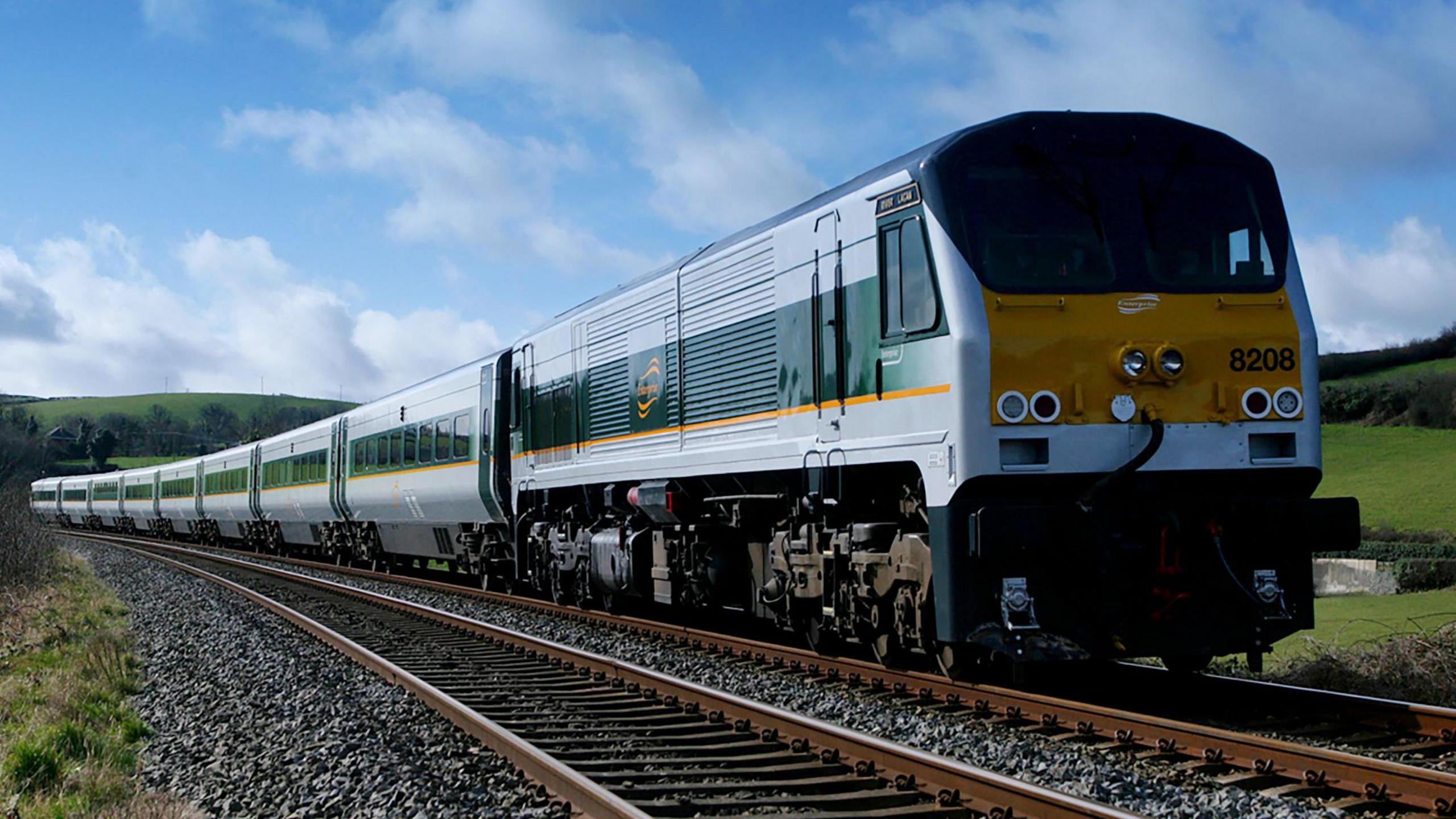Low parking fees in NI councils 'laughable'
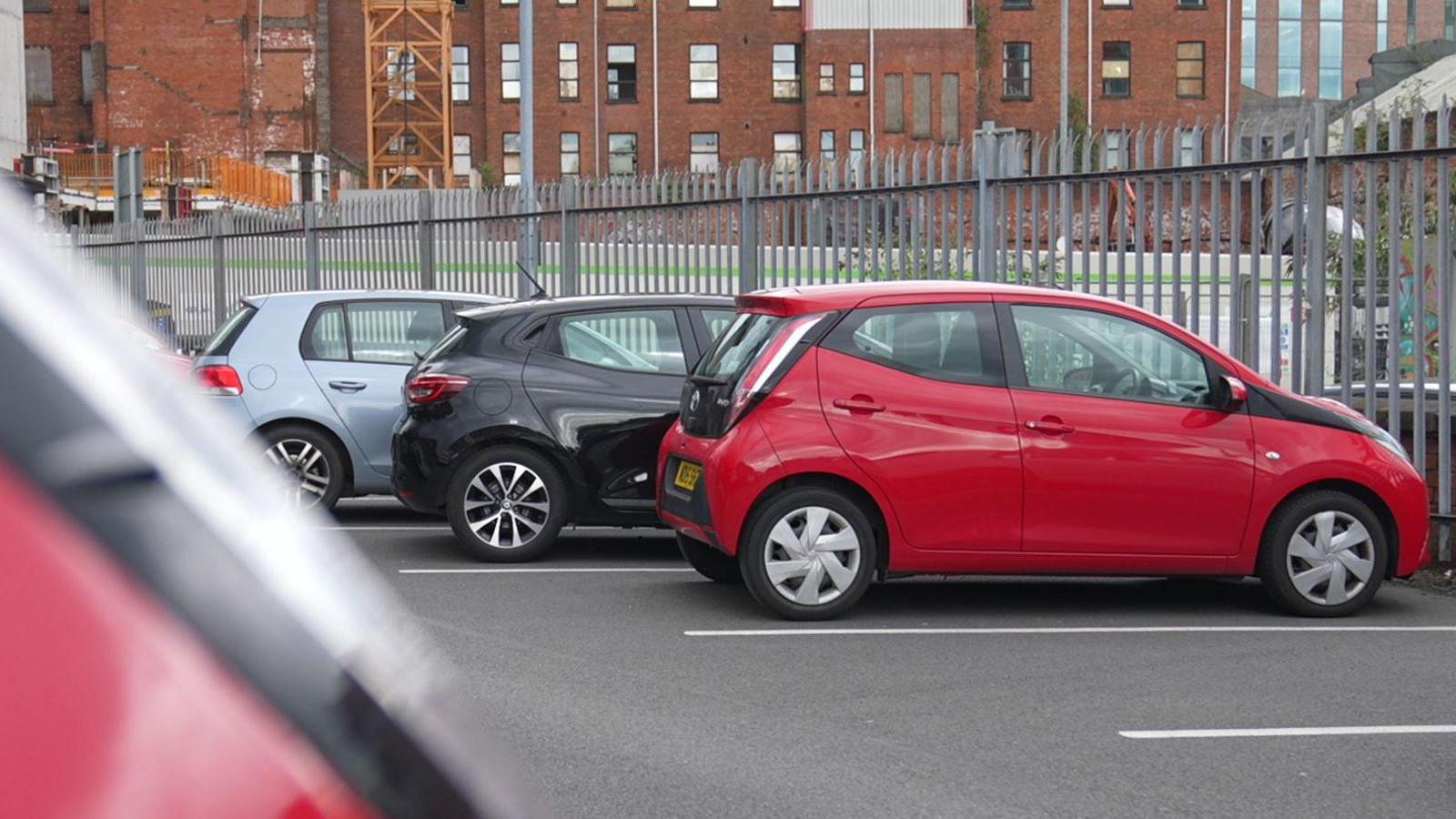
The cheapest fee-paying car parks can be found in Belfast and Antrim and Newtownabbey councils
- Published
More than a third of Northern Ireland's councils have said they have not changed their car parking prices for nearly a decade.
Public transport fares in the same period have risen by almost 22% - including three increases since last year.
Environmental campaigners called the disparity "laughable".
But councils and business groups argued lower parking fees are needed to support town and city centres.
There is also confusion from some councils on whether they have the necessary legal powers from Stormont to change the pricing.
So how much is parking?
Councils have managed off-street car parks since April 2015, while Stormont’s Department for Infrastructure (DfI) is responsible for on-street parking.
Four of the 11 local authorities told BBC News NI they have not changed their parking fees during that period.
The four are Ards and North Down council, Armagh, Banbridge and Craigavon council, Belfast City Council and Lisburn and Castlereagh council.
Other councils outlined some modest changes to some fees, with most having a mix of free and fee-paying car parks.
The cheapest fee-paying car parks, charging 20p for an hour, can be found in Belfast and Antrim and Newtownabbey councils.
In comparison, the public transport operator Translink said that since 2015 the cumulative rise in its fares has been almost 22%.
A cash day ticket on the Metro or Glider bus services now costs £5.
Off-street parking fees, controlled by DfI, have in some places doubled.
In the Belfast controlled parking zone, fees were 80p per hour in 2015 and are now £1.60.
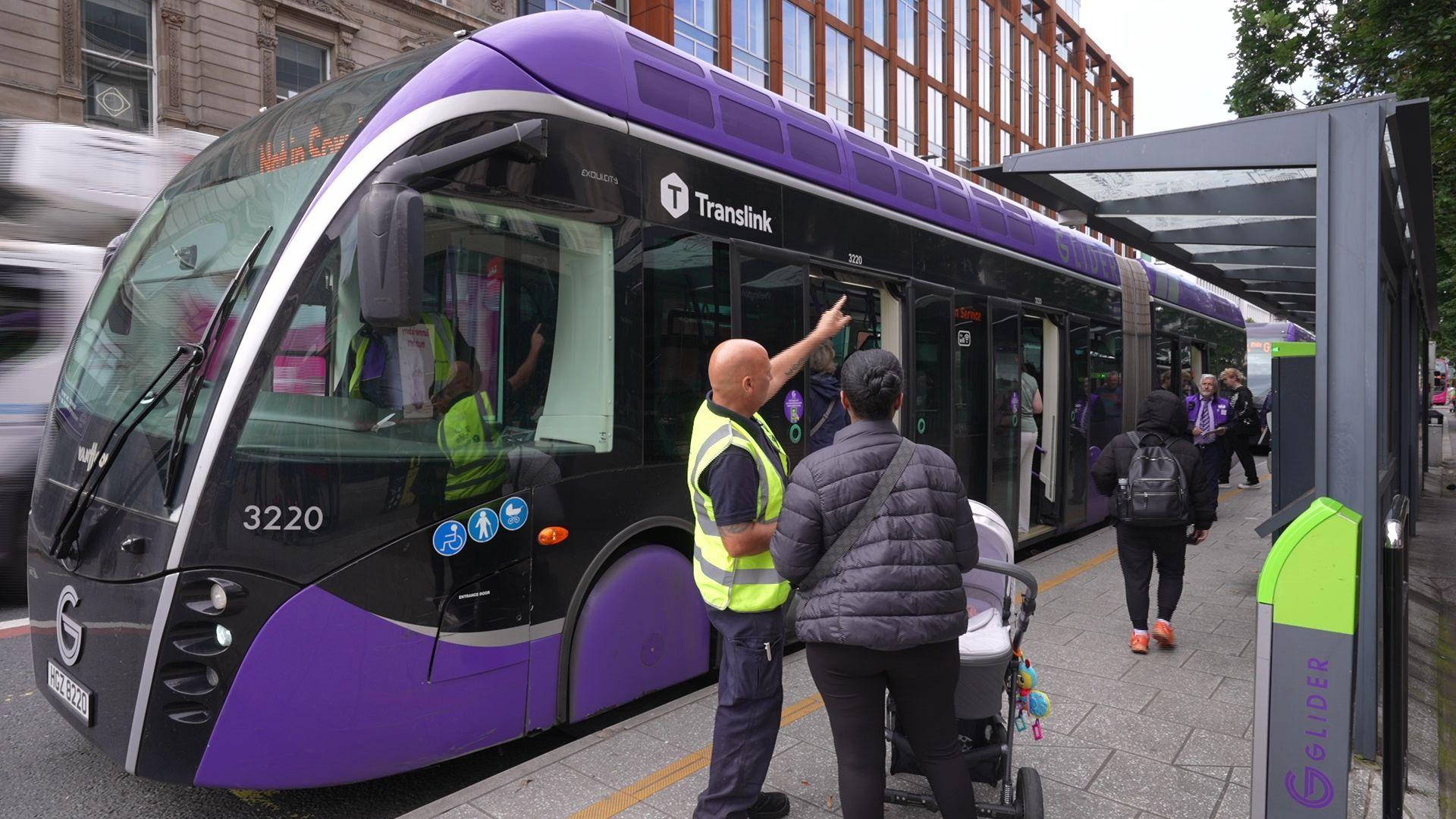
A day ticket on the Glider bus service in Belfast now costs up to £5
Belfast City Council argued that DfI needs to amend legislation to enable pricing changes.
A spokeswoman said the council is "engaged in discussions” with the department "on taking forward a draft off-street parking order for the city, which would include a review of off-street car parking tariffs".
DfI said that since 2015 councils were given "the necessary powers" to operate off-street car parks “including in relation to the setting of tariffs”.
But it added: "However, as the Off-Street Parking Order (Northern Ireland) 2000 still applies to council car parks, councils have advised that issues could potentially arise if the content of an administrative order was to diverge from that of the 2000 Order.
"The department has engaged with Belfast City Council and all other councils over the past number of years in relation to progressing the revocation of the Off-Street Parking Order (Northern Ireland) 2000 as it applies to councils."
Lisburn and Castlereagh City Council said its parking tariffs "are unchanged since 2015".
"We are committed to supporting our traders and tightly controlling car parking charges helps drive footfall into our city and town centres making sure businesses not only survive but thrive," a spokeswoman said.
'20p for parking is laughable'
Anne Madden, from the walking and cycling charity Sustrans, said public transport needs to be made "more attractive and convenient".
"If you're going to have cheap car parking, more people are going to choose the car to travel," she said.
"There are some councils charging as little as 20p per hour which is really laughable."
Ms Madden said politicians have "declared climate emergencies but we don't see that enacted in the policies that they deliver".
"We need to see more people leaving their cars behind but they won't do that if it's seen as a cheaper and more convenient option."
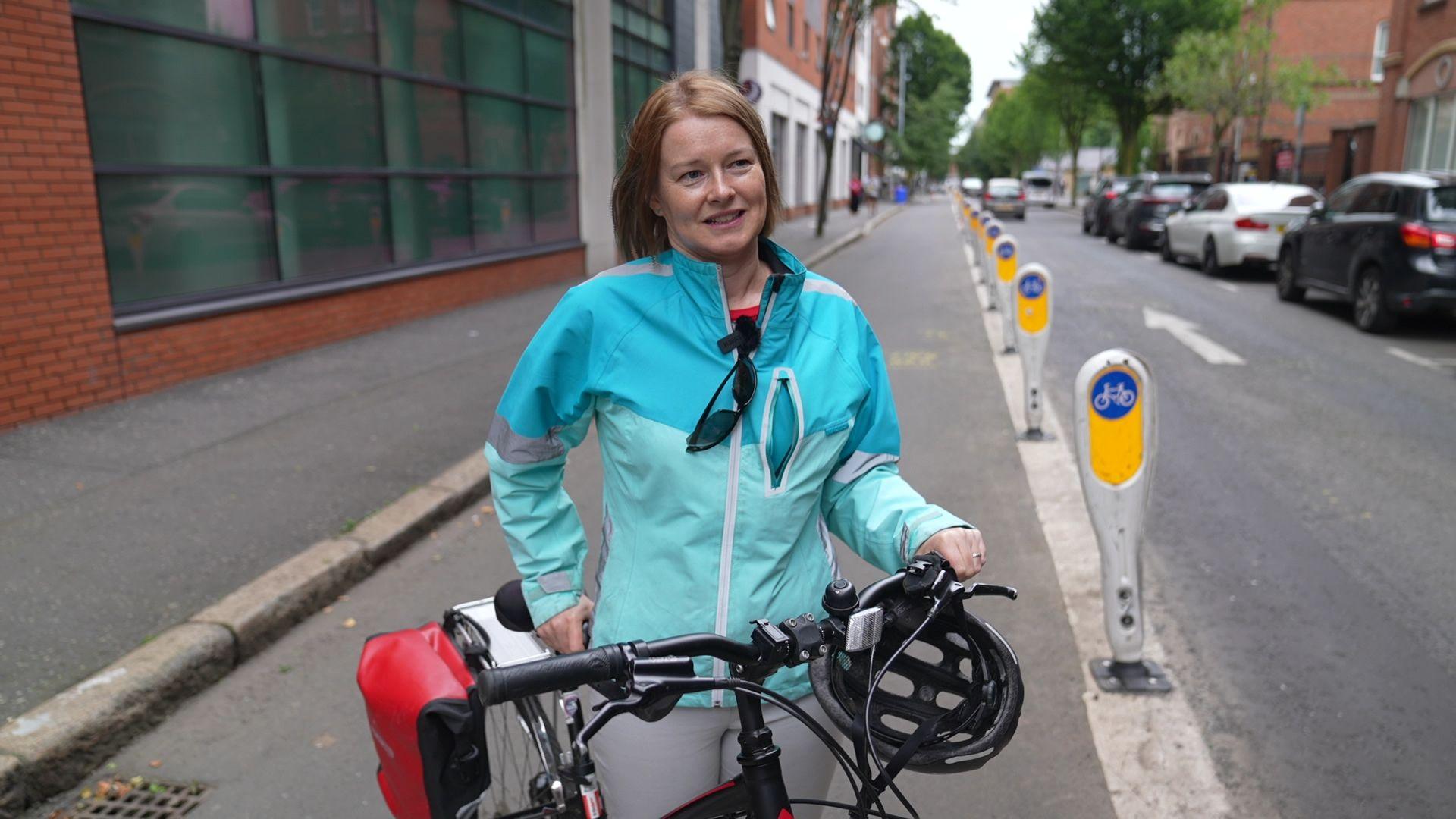
Anne Madden from the charity Sustrans
Green Party leader Mal O'Hara said there was a lack of "joined-up thinking across government and local councils".
"The fact that Translink has increased fares three times since March 2023, while also removing commuter bus services, poses a real question on a commitment to getting more people to use public transport," he said.
But Glyn Roberts, chief executive of Retail NI, said "the car is king" in many rural towns due to fewer bus and rail links.
"Until that changes we have got to have competitive and accessible car park options," he said.
He added the "only winners" from increasing parking fees would be the "big out-of-town shopping centres".

Glyn Roberts is the chief executive of Retail NI
Jason Donaghy, manager of the charity Fermanagh Community Transport, said car usage in rural areas is "high out of necessity".
He said increasing prices for drivers "on a blanket basis" would "not take account of geography, demography and economy".
Translink said its fare changes are undertaken in "full consultation" with DfI and have been kept below the rate of inflation.
A spokeswoman said: "We have worked hard to keep fares affordable and good value for our passengers and our fares continue to benchmark well when contrasted on a UK-wide basis."
- Published25 June 2024
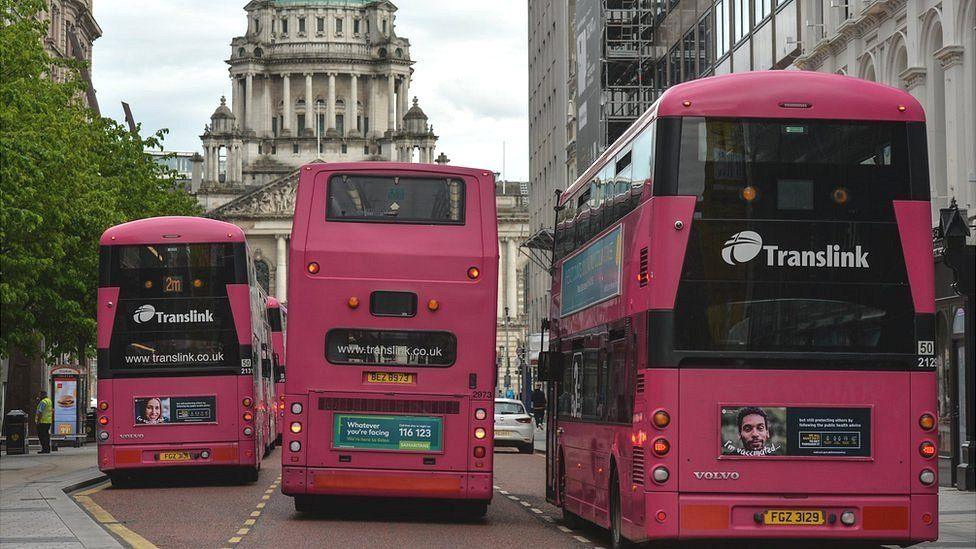
- Published4 July 2024
